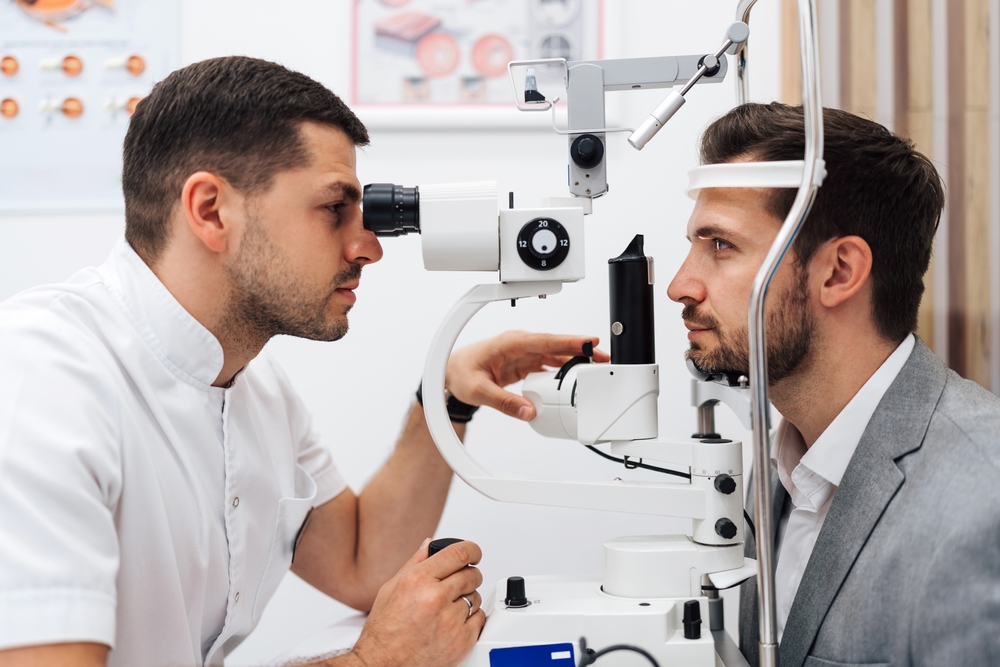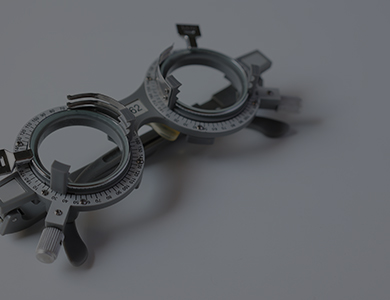How Often Should You Have an Eye Exam?
Blog:How Often Should You Have an Eye Exam?

How Often Should You Have an Eye Exam?
A comprehensive eye exam is a thorough evaluation of your visual system, performed by an optometrist. It goes beyond a simple vision screening, providing a detailed assessment of your eye health and visual function. The primary objective of a comprehensive eye exam is to detect and diagnose any potential vision problems or eye diseases at an early stage, allowing for timely treatment and prevention of further complications.
What to Expect During a Comprehensive Eye Exam
When you visit an eye doctor for a comprehensive eye exam, you can expect the following steps:
- Medical History Review: Your eye doctor will inquire about your personal and family medical history, any existing conditions, medications, and any symptoms or concerns you may have.
- Visual Acuity Test: This involves reading an eye chart to determine the sharpness of your vision at various distances.
- Refraction Test: Your eye doctor will use a phoropter (an instrument with different lenses) to determine the appropriate prescription for corrective lenses, if needed.
- Eye Muscle Coordination Test: This test evaluates how well your eyes work together, ensuring proper eye alignment and movement.
- Eye Pressure Measurement: Your eye doctor will use a tonometer to measure the pressure inside your eyes, which can detect conditions like glaucoma.
- Eye Health Examination: Using specialized equipment, your eye care professional will examine the internal and external structures of your eyes, including the cornea, lens, retina, and optic nerve.
- Additional Tests: Depending on your age, medical history, or specific concerns, your eye doctor may perform additional tests, such as visual field testing, color vision testing, or dilation of the pupils for a better view of the inside of your eyes.
Throughout the exam, your optometrist will explain the procedures and findings, addressing any questions or concerns you may have.
Eye Conditions Detected During an Eye Exam
A comprehensive eye exam can detect a wide range of eye conditions and diseases, including:
- Refractive Errors: Nearsightedness (myopia), farsightedness (hyperopia), astigmatism, and presbyopia (age-related vision changes).
- Eye Muscle Imbalances: Strabismus (crossed or wandering eyes), amblyopia (lazy eye), and other binocular vision problems.
- Cataracts: Clouding of the eye's natural lens, which can impair vision.
- Glaucoma: A group of eye diseases characterized by increased intraocular pressure, which can damage the optic nerve and lead to vision loss.
- ·Age-Related Macular Degeneration (AMD): A progressive condition that affects the central portion of the retina, leading to central vision loss.
- Diabetic Retinopathy: A complication of diabetes that can damage the blood vessels in the retina, potentially causing vision impairment or blindness.
- Eye Infections and Inflammations: Conditions like conjunctivitis (pink eye), keratitis (corneal inflammation), and uveitis (inflammation of the eye's middle layer).
Early detection and treatment of these conditions can significantly improve the chances of preserving or restoring vision and preventing further complications.
The Importance of Early Detection in Eye Health
Regular comprehensive eye exams play a crucial role in maintaining optimal eye health and preventing vision loss. Many eye diseases and vision problems are treatable, especially when caught in their early stages. Early detection allows for prompt intervention, increasing the chances of successful treatment and preventing further vision deterioration.
Some eye conditions may not exhibit noticeable symptoms in their initial stages. Regular eye exams can identify these conditions before they progress and cause irreversible damage. If you have been diagnosed with an eye condition, regular exams enable your eye care professional to monitor its progression and adjust treatment as necessary. Comprehensive eye exams can also reveal signs of systemic diseases, such as diabetes, high blood pressure, and autoimmune disorders, which can affect eye health.
By prioritizing regular comprehensive eye exams, you can take proactive steps to safeguard your vision and overall eye health, potentially avoiding more severe and costly interventions in the future.
How Often Should You Have a Comprehensive Eye Exam?
The frequency of comprehensive eye exams depends on various factors, such as age, risk factors, and the presence of existing eye or medical conditions. Here are some general guidelines:
- Children: It is recommended that children have their first comprehensive eye exam around 6 months of age, followed by another exam at age 3, and then annually.
- Adults (18-60 years old): Individuals with no risk factors or vision problems should have a comprehensive eye exam at lease once every two years.
- Adults (61 years and older): After age 61, it is advisable to have an eye exam annually to monitor for age-related eye conditions like cataracts, glaucoma, and macular degeneration.
- Individuals with Risk Factors: Those with risk factors such as diabetes, high blood pressure, a family history of eye diseases, or a history of eye injuries or surgery may need more frequent eye exams, as recommended by their eye care professional.
- Contact Lens Wearers: Individuals who wear contact lenses should have an eye exam at least annually to ensure proper fit, eye health, and vision correction.
It's important to note that these are general guidelines, and your eye care professional may recommend a different schedule based on your specific circumstances and eye health needs.
Schedule Your Comprehensive Eye Exams with Texas State Optical Today
Regular comprehensive eye exams are essential for preserving your vision and overall eye health. These exams go beyond a simple vision screening, providing a thorough evaluation of your visual system and enabling early detection of potential eye conditions and diseases. By prioritizing comprehensive eye exams, you can take proactive steps to safeguard your vision and overall eye health, potentially avoiding more severe and costly interventions in the future.
To schedule your next comprehensive eye exam, contact Texas State Optical today. Our experienced team of optometrists is dedicated to providing personalized care and ensuring the long-term health of your eyes. Visit our office in Austin, Texas, or call (512) 327-3605 to book an appointment.


